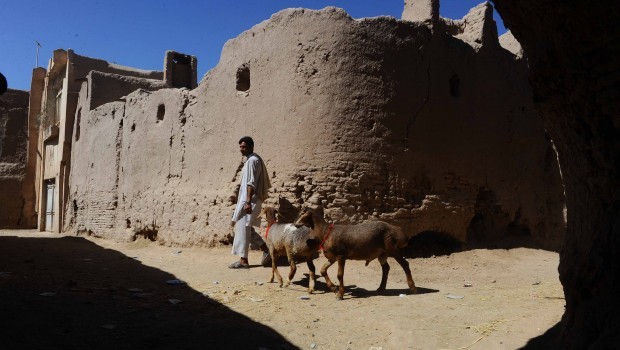
An Afghan shepherd walks with his animals in a street in Herat on August 26, 2013. (AFP Photo/Aref Karimi)
Herat, Reuters—The Afghan Taliban executed six men who worked for a government programme in western Herat, one of the war-ravaged country’s most stable provinces whose small but promising private sector is driving the national economy, the governor said on Tuesday.
The men were shot in the head late on Monday, despite efforts by governor Fazlullah Wahidi to convince the Taliban the men did not work for him.
“We had gathered some elders to meet the Taliban to tell them that they … worked for everyone in the country, but the Taliban killed them before they arrived for negotiations,” Wahidi said.
The Afghan men worked for a World Bank-funded programme created by the Ministry of Rural Rehabilitation and Development that aims to improve project management before the pullout of most foreign troops from the country next year.
Elections are to be held on April 5 to replace President Hamid Karzai, who came to power in 2001 after US-led forces toppled the Taliban.
Many Afghans say the elections are an essential part of bringing peace, but attacks by the Islamist Taliban are causing increasing concern.
Herat’s USD 1 billion-a-year economy contributed about a fifth of Afghanistan’s revenue in 2012 and the West has pinned hopes on the province helping to wean the country off international aid.
The western province has been mostly stable, but Taliban fighters stormed a court where militants were standing trial in April, killing seven and wounding 75.
Random executions by the Taliban are not rare in Afghanistan but recent attacks have typically occurred in more restive provinces.
About two weeks ago, eight people who worked for Afghan security forces were executed in violent Ghazni on their way to Kabul by bus.
They had been tricked into identifying themselves at an improvised checkpoint by Taliban fighters dressed as Afghan soldiers, who told them there was a Taliban checkpoint ahead and to get off the bus to avoid being killed.
